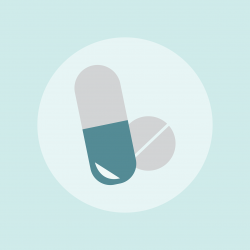Morphine is a powerful drug, and if you are addicted to it it is recommended that you seek professional help. Treatment professionals will help you overcome with counseling and helpful medications.
Medications Used in Morphine Addiction Treatment
Morphine is an opioid medication used to treat moderate to severe and chronic pain. Its powerful effects, as well as its potential for abuse, tolerance, dependence, and addiction are well known and it remains the standard by which other opioid pain relievers are compared.
Morphine addiction is one of the most difficult to overcome because regular and long term morphine use can alter the mind and body in multiple ways, disrupting normal physiological processes and causing painfully unpleasant withdrawals when the person attempts to cease use.
Medications used in morphine addiction treatment not only help to keep the person comfortable while undergoing detox from morphine, but, they can be used for long term maintenance to manage cravings, prevent relapse and deter abuse, and to keep the person engaged in treatment while improving their overall quality of life. According to NIDA, “pharmacological treatments counter the effects of the drug on the brain and behavior, and can be used to relieve withdrawal symptoms, help overcome drug cravings, or treat an overdose.” We can help you find the treatment you need. Call 800-934-1582(Who Answers?) today.
Morphine Addiction
Like other opioids, morphine use for more than several days can cause tolerance and dependence. A person may not know that they are dependent on the morphine until they attempt to quit using it and develop symptoms that are flu-like in nature (withdrawals).
It’s possible for a person to be dependent on morphine and not be addicted because addiction is marked by intense cravings and compulsive use, despite negative consequences of continuing use, whereas, those who are dependent on morphine suffer no ill consequences from its use.
The lasting difficulties of morphine addiction often results in high relapse rates for these individuals who will probably go through multiple attempts to quit before seeking treatment help using medication assistance. If you are ready for morphine rehab, call us today at 800-934-1582(Who Answers?) for help finding the right program for you.
Morphine Withdrawals
Morphine withdrawals may include intense cravings for the drug long after the last dose is administered and this makes it hard for people who are addicted to remain abstinent even when they have successfully completed a detox treatment. For some, just the thought of the physical and psychological pain and distress of withdrawals becomes the primary reason they continue using morphine in order to avoid those conditions. For these reasons, medication assistance, combined with counseling and other resources, have proven most beneficial in morphine addiction treatment.
Rapid Detox
Naltrexone is an opioid antagonist medication that can precipitate morphine withdrawal by blocking the opioid molecules from the opioid receptors in the brain. It also works by dislodging any opioid molecules that are currently attached to those receptors and is used in rapid detox.
Rapid detox using antagonist medications such as Naltrexone have not been proven to shorten the duration of withdrawals and since this process is administered while the patient is under anesthesia, safety has become a primary concern.
Primary Medications Used in Morphine Addiction Treatment
The agonist medication, methadone, and partial agonist medication, buprenorphine which is the main ingredient in Subutex and Suboxone, are the two primary medications used for morphine addiction treatment. Both have the ability to stave off withdrawals and cravings for an extended period of time, averaging 24 – 36 hours or more, making them effective for both detox and maintenance therapies. These medications effectively block the effects of other opioids to deter their abuse once a cross-tolerance is established.
Clonidine is also used in morphine addiction treatment to control hypertension (high blood pressure) and other symptoms of anxiety, irritation, restlessness, panic, diarrhea, insomnia and pain during morphine detox and if the person chooses not to use methadone or buprenorphine medication assistance in the process.
Methadone
Methadone has a long history of being a successful medication used in the treatment of opioid addictions. As a full opioid agonist medication, methadone is able to activate the same receptors, albeit more slowly, as morphine to rebalance the brain’s chemical processes and neurological functions while reducing the person’s dependence on the shorter acting opioid, morphine.
According to the Substance Abuse and Mental Health Services Administration,” There is moderate evidence that agonist maintenance treatment results in less illicit opioid use in the medium term than opioid withdrawal or antagonist therapy. Opioid-dependent patients should be encouraged to use opioid agonist maintenance treatment in preference to these other approaches.” To date, methadone remains the recommended choice for this type of morphine addiction treatment. We can help you find a methadone doctor. Call 800-934-1582(Who Answers?) today.
Buprenorphine
Buprenorphine works basically the same way as methadone, with the exception that it has lesser effects on some opioid receptors and has a maximum limit on dosage effects. In fact, buprenorphine medications used in the treatment of opioid addictions are less restricted than methadone in prescribing practices. According to the Substance Abuse and Mental Health Services Administration, “It is the first partial opioid agonist in recent U.S. history available for use by certified physicians outside the traditional opioid treatment delivery system”.
Buprenorphine medications are made to be taken orally or sublingually by dissolving a film under the tongue, but opioid abusers have always found ways around the deterrence methods used for delivery of these types of drugs. Therefore, buprenorphine is also combined with naloxone, an opioid antagonist, in the medication Suboxone to deter the abuse of buprenorphine if administered intravenously. Under normal delivery, the naloxone remains mostly inactive, but, since it can precipitate withdrawals when enough is quickly delivered to the brain, it supersedes the effects of the buprenorphine in IV abuse.
There are many different treatment options. For help understanding the options and choosing what’s best for you, give us a call at 800-934-1582(Who Answers?) today.
the Take-Away

